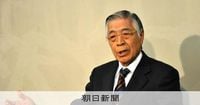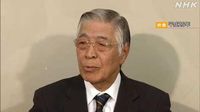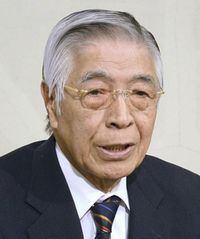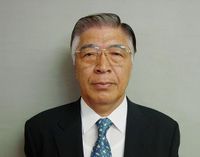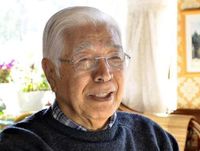Eisaku Sato, who served as the Governor of Fukushima Prefecture for an impressive 18 years, passed away on March 19, 2025, at a nursing home in Koriyama City, due to old age. He was 85 years old. Sato's death marks the end of a prominent political career that saw him both championing local development and facing serious legal challenges.
Born in Koriyama City, Sato graduated from the Faculty of Law at the University of Tokyo in 1963. He joined a clothing manufacturing company that was established by his father and soon became involved in public service, first serving as a member of the House of Councillors after his election in 1983. By 1987, he ascended to the role of Senior Vice Minister of Finance, further establishing his political credentials.
In 1988, Sato resigned from the House of Councillors to run for governor, becoming the first mayor of Fukushima Prefecture not only to serve one term but five consecutive ones, a record that privileges him as one of the longer-serving governors in Japan's modern political history. During his long tenure, which lasted until 2006, Sato was instrumental in various developmental projects, including the opening of Fukushima Airport in 1993 and the establishment of Aizu University.
However, his career was not without controversy. In September 2006, while serving his fifth term, he resigned following a bribery scandal linked to construction projects ordered by the prefecture. The scandal involved his younger brother, who was also implicated in bid-rigging activities. Sato himself was arrested the following month on suspicion of bribery concerning public works, asserting his innocence throughout the judicial process.
Despite maintaining that he did not accept any kickbacks, Sato was convicted in a case that revealed troubling aspects of local governance and corruption. In 2012, the Supreme Court of Japan upheld a guilty verdict against him, resulting in a suspended two-year prison sentence, marking a significant fall from grace for the once-respected public servant.
In addition to his administrative endeavors, Sato was a vocal critic of nuclear power from the early stages of his governance. His administration was marked by a significant episode concerning the Tokyo Electric Power Company (TEPCO), when troubling information regarding the safety violations of the Fukushima Daiichi Nuclear Power Plant came to light. Following this revelation, Sato made a controversial decision to withdraw the pluthermal plan previously supported by his office, emphasizing local safety and environmental concerns.
The Fukushima Daiichi nuclear disaster in March 2011 further amplified Sato's position against nuclear power. After the catastrophic events, he became an active figure in anti-nuclear campaigns, speaking at rallies and conferences that sought to advocate for a nuclear phase-out in Japan. His shift in focus from development to environmental activism underscored a personal transformation shaped by the realities of nuclear energy management and the community's safety.
On March 19, his passing was confirmed, with the family stating that Sato died peacefully in the nursing home at around 3:01 AM. The announcement was met with responses from several political circles, who remembered him not only for his governance style but also for the controversial paths his policies took, both criticized and praised.
Funeral services are scheduled for March 28, at 2:00 PM at the Koriyama Funeral Hall, and his eldest son, Eiyu Sato, will serve as the chief mourner. This ceremony will allow family, friends, and colleagues to pay their last respects and reflect on his complex legacy.
Sato is survived by his wife and children, including his son who is also involved in public service. His daughter, Mikako, is married to Koichiro Genba, the Deputy Speaker of the House of Representatives, entwining his family into the sphere of national political discourse.
As the region continues to heal from the memories of the nuclear disaster and corruption inquiries, Eisaku Sato's life stands as a testament to both the potential for local governance to enact meaningful change and the pitfalls that can accompany power in the political landscape of Japan.
